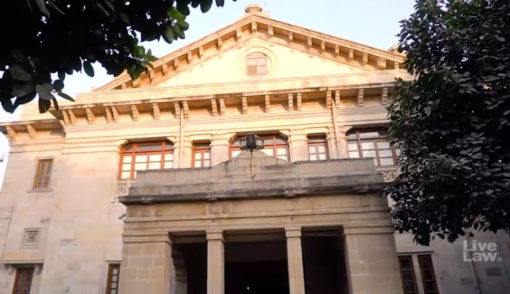Allahabad High Court held that a woman employee was entitled to maternity leave for a full period of six months as against only three months she was granted by the respondent District Basic Education officer, Bijnor and directed latter to provide the petitioner woman employee maternity leave with honorarium with effect from 30.12.2018 to 31.3.2019 as was prayed by her.

Court was hearing case Anshu Rani v. State of U.P. wherein petitioner had preferred the writ petition with a prayer to issue a Mandamus directing the District Basic Education Officer, Bijnor to grant the petitioner maternity leave with honorarium.
District Basic Education Officer had turned down the request of the petitioner for maternity leave for 180 days and had granted her leave for a period of 90 days only. No reason whatsoever was assigned by the authority that under which circumstances the request for grant of maternity leave for a period of 180 days was turned down and the maternity leave was granted only for a period of 90 days.
Court besides referring to Article (s) 14 (right to equality), 15(3) (Ensuring special provisions for women and children), 42 (Provision for just and humane conditions of work and maternity relief) placed reliance on decision of Supreme Court in Municipal Corporation of Delhi Vs. Female Workers (Muster Roll) and another 2000 (3) SCC 224, wherein Supreme Court had held in light of Universal Declaration of Human Rights and various provisions of the Constitution that “To become a mother is the most natural phenomena in the life of a woman. Whatever is needed to facilitate the birth of a child to a woman who is in service, the employer has to be considerate and sympathetic towards her and must realize the physical difficulties which a working woman would face in per11 forming her duties at the work place while carrying a baby in the womb or while rearing up the child after birth. The Maternity Benefit Act, 1961 aims to provide all these facilities to a working woman in a dignified manner so that she may overcome the state of motherhood honourably, peaceably, undeterred by the fear of being victimised for forced absence during the pre or post-natal period.”
Court also relied on the judgment of High Court of Madras in U. Ishwarya Vs. Director of Medical Education, Directorate of Medical Education and Others (decided on 22nd December, 2017) in which Court held that “maternity leave cannot be denied and the period of maternity leave should not be kept apart or executed from service and maternity leave has to be excluded from the period of service is “null and void”.”
Parliament in the twelfth year of Republic of India had enacted an Act namely Maternity Benefit Act, 1961. The Act was amended in the year 2017 known as Maternity Benefit (Amendment) Act, 2017. Section 5(3) of the Maternity Benefit Act, 1961 provided that the maximum period for which any woman shall be entitled to maternity benefit shall be twelve weeks of which not more than six weeks shall precede the date of her expected delivery. By the aforesaid amendment, the period for grant of maternity leave has been increased to twenty six weeks of which not more than eight weeks shall precede the date of her expected delivery.
Courtesy: Indian Cultural Forum
